𝐇𝐞𝐚𝐫𝐭 𝐅𝐚𝐢𝐥𝐮𝐫𝐞 - 𝐂𝐚𝐮𝐬𝐞𝐬, 𝐒𝐲𝐦𝐩𝐭𝐨𝐦𝐬, 𝐚𝐧𝐝 𝐓𝐫𝐞𝐚𝐭𝐦𝐞𝐧𝐭𝐬
𝐇𝐞𝐚𝐫𝐭 𝐅𝐚𝐢𝐥𝐮𝐫𝐞 𝐢𝐧 𝐒𝐞𝐧𝐢𝐨𝐫 𝐂𝐢𝐭𝐢𝐳𝐞𝐧𝐬
The term heart failure, while loaded in context, is a general description of disorders related to the movement of blood to the heart or from the heart to the extremities. Heart failure does not mean that the heart has stopped pumping blood to the body, but it is characterized by an insufficient amount of blood reaching the heart and the rest of the body. It is important that senior citizens and those involved in their eldercare understand heart failure in order to prevent, identify, and treat the condition, as senior citizens are at higher risk for developing heart problems.
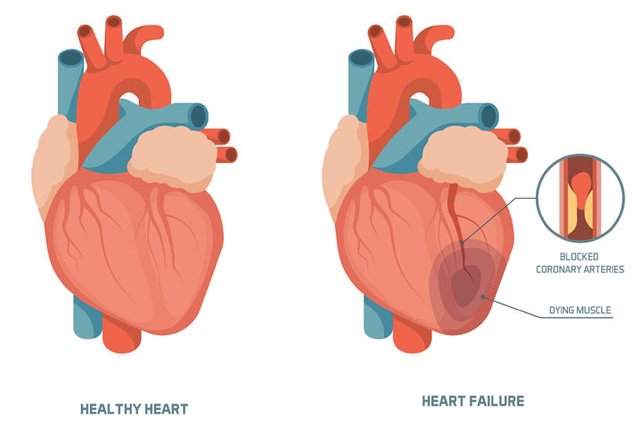
Click Here for the fit heart: https://bit.ly/3wdnMPM
𝐒𝐨𝐦𝐞 𝐬𝐩𝐞𝐜𝐢𝐟𝐢𝐜 𝐝𝐢𝐬𝐨𝐫𝐝𝐞𝐫𝐬 𝐜𝐚𝐭𝐞𝐠𝐨𝐫𝐢𝐳𝐞𝐝 𝐮𝐧𝐝𝐞𝐫 𝐡𝐞𝐚𝐫𝐭 𝐟𝐚𝐢𝐥𝐮𝐫𝐞 𝐢𝐧𝐜𝐥𝐮𝐝𝐞:
▶ dropsy
▶ left-side (systolic) heart failure - lower amounts of blood are pumped out of the heart. People who have left-side failure inevitably will have right-side failure.
▶ right-side (diastolic) heart failure - this affects the heart's capacity to fill with blood and pump blood to the lungs. Some symptoms of RSHF include shortness of breath, fatigue, and fluid build-up in the feet, legs, liver, abdomen, and sometimes in the veins of the neck.
The blood serves as a vehicle for oxygen that the heart moves around the body to aid in important biological processes. The heart can grow weak with time, which leads to heart disease. The differences that occur between the left and right side failure are due to the fact that blood enters the heart through the right side which is then sent to the lungs to pick up oxygen. The left side is then used to pump the oxygenated blood to the rest of the body, to once again return to the heart after being relieved of its oxygen content.
Senior citizens are especially susceptible to heart disease because it can occur from the long-term weakening of the heart. Other diseases such as coronary heart disease, high blood pressure, and diabetes can also contribute to heart failure.
Heart failure is very common in the United States, causing about 300,000 deaths per year, and its treatments can vary according to the age of the individual affected, the type of heart failure they have developed, and the symptoms present.

Click Here for the fit heart: https://bit.ly/3wdnMPM
Although there is no cure for heart problems such as these, early diagnosis is best for individuals so they can start a lifestyle of preventative measures as well as treatment, which is improving all the time. Senior citizens and those involved in caring for the elderly should be vigilant about monitoring for symptoms of heart malfunctioning so that the appropriate measure can be taken for prevention. People with heart problems often rely on medications and follow recommendations by their doctors which can include healthy eating styles, physical activity, and controlling other disorders that contribute to heart failures like heart disease and diabetes.
𝐋𝐢𝐟𝐞𝐬𝐭𝐲𝐥𝐞 𝐚𝐧𝐝 𝐇𝐞𝐚𝐫𝐭 𝐃𝐢𝐬𝐞𝐚𝐬𝐞
Lifestyles and eating habits that contribute to the development of heart disease also contribute to heart failure symptoms by weakening the heart. Overworking the heart has punishing effects by the release of proteins and substances that further damage the heart. Senior citizens should take the necessary measures to prevent heart failure, this includes healthy lifestyle habits. Also, senior citizens should be careful not to over-exert themselves during rigorous physical activity. Those involved in caring for the elderly should encourage and facilitate a healthy lifestyle, and discourage overexertion by helping with certain activities.
𝐃𝐢𝐬𝐞𝐚𝐬𝐞𝐬 𝐭𝐡𝐚𝐭 𝐜𝐚𝐧 𝐜𝐚𝐮𝐬𝐞 𝐡𝐞𝐚𝐫𝐭 𝐟𝐚𝐢𝐥𝐮𝐫𝐞 𝐢𝐧𝐜𝐥𝐮𝐝𝐞:
▶ Coronary heart disease (CAD): a plaque that builds up in blood vessels as a result of damage caused by eating high-fat and high-salt foods, thus compromising blood flow and oxygen transport - this can eventually lead to a heart attack.
▶ High blood pressure: when the force of blood against the artery walls stays at or above 140/90 mmHg over time, this stresses the blood vessels and the heart which causes damage
▶Diabetes: when the body is unable to make insulin, a hormone that converts the sugars in food to energy, higher amounts of sugar in the blood can cause more damage to blood vessels.
▶ Heart muscle or valve disease /arrhythmias (irregular heartbeats): defect of the heart itself arising from a birth defect, infection, or damage from heart disease.
▶ Congenital heart defects: these present at birth
▶ Cancer and associated treatment
▶ Thyroid disorders
▶ Alcohol abuse
▶ HIV / AIDS
▶ Illicit drug use
▶ Excess of Vitamin E
▶ Obstructive sleep apnea: breathing is impaired during sleep, causing the heart to be overworked to get oxygen to the body.
𝐇𝐞𝐚𝐫𝐭 𝐅𝐚𝐢𝐥𝐮𝐫𝐞 𝐑𝐢𝐬𝐤 𝐅𝐚𝐜𝐭𝐨𝐫𝐬
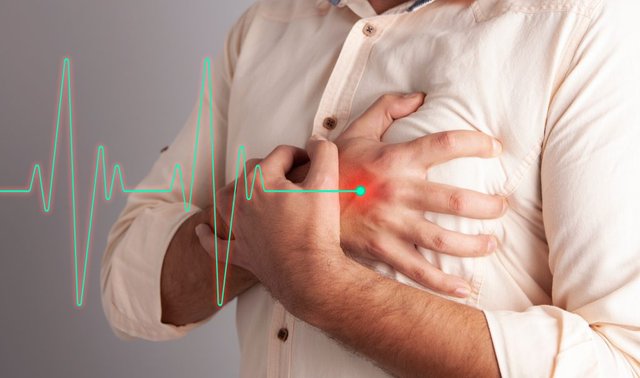
Click Here for the fit heart: https://bit.ly/3wdnMPM
People who are at higher risk for heart failure and associated symptoms include:
▶ Senior citizens (aged 65 or older): the weakening of the heart is a long term process, and senior citizens are also more prone to other diseases that damage or weaken the heart and blood vessels
▶ African Americans: African Americans are more likely to have more severe symptoms or develop heart failure earlier in life.
▶Obese or overweight individuals: higher stress on the heart due to being overweight contributes to this as well as a higher susceptibility to diabetes that also results
▶ Men: there is a higher rate of heart failure in men, although more women are reported to have it since they have a longer lifespan on average
𝐇𝐞𝐚𝐫𝐭 𝐅𝐚𝐢𝐥𝐮𝐫𝐞 𝐒𝐲𝐦𝐩𝐭𝐨𝐦𝐬 𝐚𝐧𝐝 𝐂𝐨𝐧𝐝𝐢𝐭𝐢𝐨𝐧𝐬
Because heart failure involves a weakened heart pumping less blood than it should, symptoms are caused by fluid building up in the body as a result of slowed transport of oxygen and blood. These symptoms include shortness of breath, fatigue, frequent urination, or swelling in the extremities which can lead to weight gain. Another very serious symptom involves coughing that worsens when lying down due to fluid in the lungs, otherwise known as acute pulmonary edema.
Heart failure conditions vary due to specific underlying causes addressed earlier in this article and the susceptibilities of the individual. Your physician incorporates information about the specific causes, family history, and other diagnostic tools (tests, exams) to identify your specific condition, rule out other causes, and measure your heart's health and ability to pump blood.
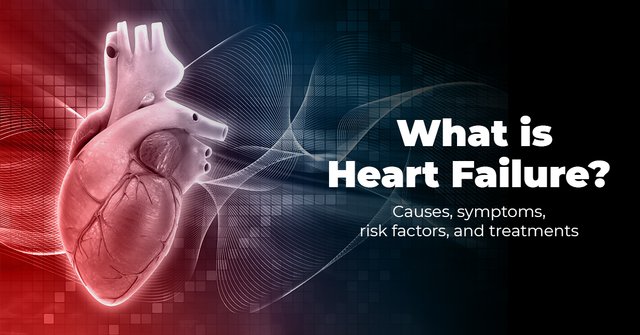
Click Here for the fit heart: https://bit.ly/3wdnMPM
Treatment for heart failure can include treating other underlying causes of the disorder like diabetes or high cholesterol, relieving symptoms like swelling and fatigue, preventing further damage, and improving the overall quality of life. Lifestyle changes, medicines, and more invasive medical procedures may be required to treat heart failure in advanced stages. Senior
citizens and those involved in their elder care must be proactive about the treatment and prevention of heart failure.
Lifestyle Choices That Prevent Heart Failure
Making healthy lifestyle choices is important for everyone, but it is especially important for senior citizens to actively maintain their health as they age. Those involved in caring for the elderly should encourage healthy behaviors by helping the elder with meal plans and facilitating the physical activity.
Follow a healthy eating plan: this entails a diet low in salt, fat, trans fat, cholesterol. Salt can cause extra fluid build-up in the body, high cholesterol can further damage blood vessels and heart functioning, and trans fat can increase LDL or bad cholesterol in the blood. Avoiding bad foods is as important as the combined effort involved in eating highly nutritious food with more emphasis on potassium (found in bananas, strawberries, beets, and greens). Some doctors recommend limiting fluid intake and abstaining from alcohol completely.
Adopt Healthy Habits: Maintaining a healthy weight, participating in a safe amount of physical activity, avoiding unhealthy habits like smoking, and getting enough sleep are all basic guidelines for healthier living.
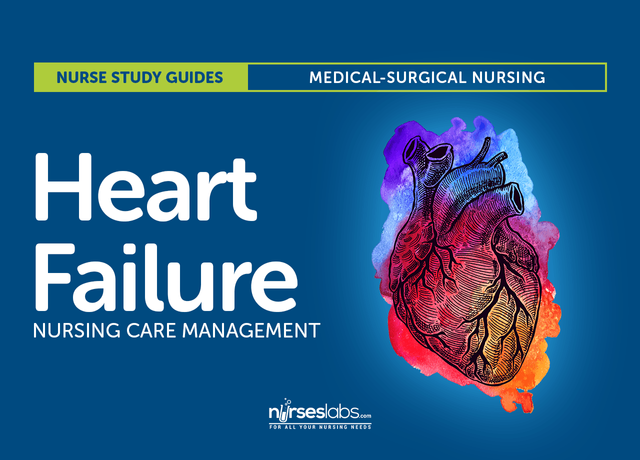
Click Here for the fit heart: https://bit.ly/3wdnMPM
𝐌𝐞𝐝𝐢𝐜𝐚𝐭𝐢𝐨𝐧𝐬 𝐟𝐨𝐫 𝐇𝐞𝐚𝐫𝐭 𝐅𝐚𝐢𝐥𝐮𝐫𝐞:
▶ Diuretics: reduces fluid build-up
▶ ACE inhibitors: lower blood pressure
▶ Aldosterone antagonists: rid the body of salt and excess fluid through urination; lowers the amount of blood the heart has to pump
▶ Angiotensin receptor blockers: relaxes blood vessels and lowers blood pressure
Beta-blockers: slows heart rate
▶ Isosorbide dinitrate/ hydralazine hydrochloride: relaxes blood vessels
▶ Digoxin: causes the heart to beat stronger and pump more blood
Most of these medicines work to lower the stress on the heart caused by pumping oxygenated blood when the blood vessels and heart function are compromised. If symptoms are too serious, some treatments may have to involve hospital stays where doctors use more invasive techniques to control heart failure symptoms.
It is also important for individuals or those providing in-home care to monitor weight gain and heart failure symptoms in order to identify any changes that are taking place so that physicians can take appropriate action. Controlling heart failure symptoms is a group effort of physicians, people affected, and those involved in their elder care where communication and self-monitoring procedures are very important.
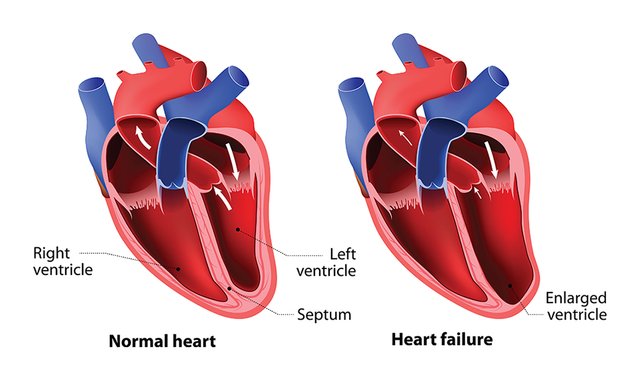
Click Here for the fit heart: https://bit.ly/3wdnMPM
𝐌𝐞𝐝𝐢𝐜𝐚𝐥 𝐏𝐫𝐨𝐜𝐞𝐝𝐮𝐫𝐞𝐬 𝐚𝐧𝐝 𝐒𝐮𝐫𝐠𝐞𝐫𝐲 𝐟𝐨𝐫 𝐇𝐞𝐚𝐫𝐭 𝐃𝐢𝐬𝐞𝐚𝐬𝐞
▶ Cardiac Resynchronization Therapy: If different sides of the heart are affected differently by heart disease, a pacemaker implant may be needed so that the two sides can pump at the same rate.
▶ Implantable Cardioverter Defibrillator: (ICD): this is also a correcting device working on the heart in individuals who experience rapid or irregular heartbeats.
▶ Mechanical heart pump or left ventricular assist device: this manually pumps blood from the heart to the extremities.
▶ Heart transplant: some people may receive healthier hearts from deceased donors.
▶ Open-heart surgery or angioplasty: a less common procedure that aims to unblock arteries.
𝐏𝐫𝐞𝐯𝐞𝐧𝐭𝐢𝐨𝐧 𝐨𝐟 𝐇𝐞𝐚𝐫𝐭 𝐅𝐚𝐢𝐥𝐮𝐫𝐞
It is important that senior citizens stay proactive about their health and prevent heart failure. Seniors should work with those assisting with their eldercare and other health care professionals use the steps that you can take in advance to prevent heart failure:
𝐅𝐨𝐫 𝐩𝐞𝐨𝐩𝐥𝐞 𝐰𝐢𝐭𝐡 𝐡𝐞𝐚𝐥𝐭𝐡𝐲 𝐡𝐞𝐚𝐫𝐭𝐬:
▶ Follow a healthy eating plan
▶ Do not smoke or avoid second-hand smoke
▶ Maintain a healthy weight for you
▶ Participate in healthy amounts of physical activity do not use or abuse illicit drugs
𝐅𝐨𝐫 𝐩𝐞𝐨𝐩𝐥𝐞 𝐚𝐭 𝐡𝐢𝐠𝐡𝐞𝐫 𝐫𝐢𝐬𝐤 / 𝐚𝐟𝐟𝐞𝐜𝐭𝐞𝐝 𝐛𝐲 𝐡𝐞𝐚𝐫𝐭 𝐟𝐚𝐢𝐥𝐮𝐫𝐞:
In addition to the steps listed above, you should treat and control already existing heart failure conditions in the form of:
▶ medication or adjusted lifestyle practices.
▶ Avoid alcohol consumption
▶ Visit or talk with your physician regularly
▶ Take medications recommended by your doctor and understand how they work
It is generally good advice that senior citizens living with heart failure follow an appropriate treatment plan that they have worked out with a doctor or other health professionals involved in their elder care. Responsible control of heart disease and heart failure symptoms can lead to living longer and experiencing a better quality of life. It is important for you and those participating with your in-home care to find ways that will decrease the likelihood of forgetting to take medications or increase the likelihood of following the correct eating plan. There are many resources that either home health agencies, in-home caregivers, and doctors can provide that will provide assistance in sticking to a lifestyle that optimizes health despite complications with the heart.
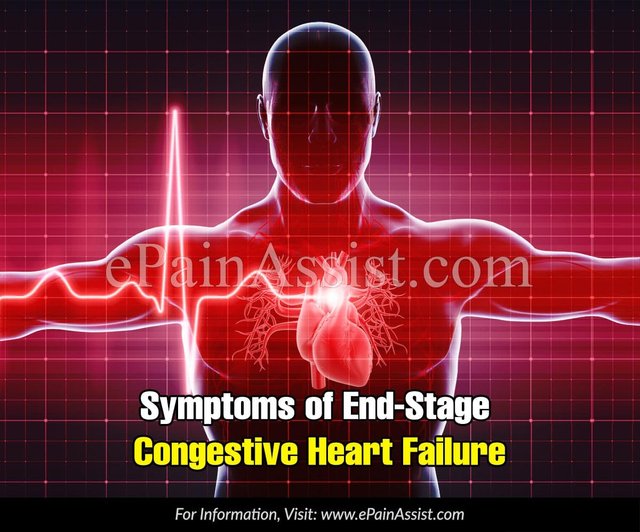
Click Here for the fit heart: https://bit.ly/3wdnMPM
Keeping track of changes in your symptoms despite treatment, avoiding contracting other short-term illnesses like respiratory infection, and being good to yourself is important for you to remain healthy. The difficulties of adapting to a life with heart failure symptoms can make some people depressed. If you have these kinds of feelings, you should talk about them with someone you trust, perhaps someone involved in your elder care, who will assist you in treating the emotional side effects that can result from the challenging task of living with a heart condition. Finally, just knowing when to seek out the help of others and that it is okay to seek help with things you may find difficult about heart failure treatment is very important for coping with this illness. Be sure that you know how to contact your physician and other health professionals providing elder care, and others that will be able to assist you. Know the directions to your doctors' offices and hospitals. Also, some people find that it helps to keep a list of medications that they take and their functions for both avoiding forgettings and to aid caregivers and physicians who will help you.
Click Here for the fit heart: https://bit.ly/3wdnMPM